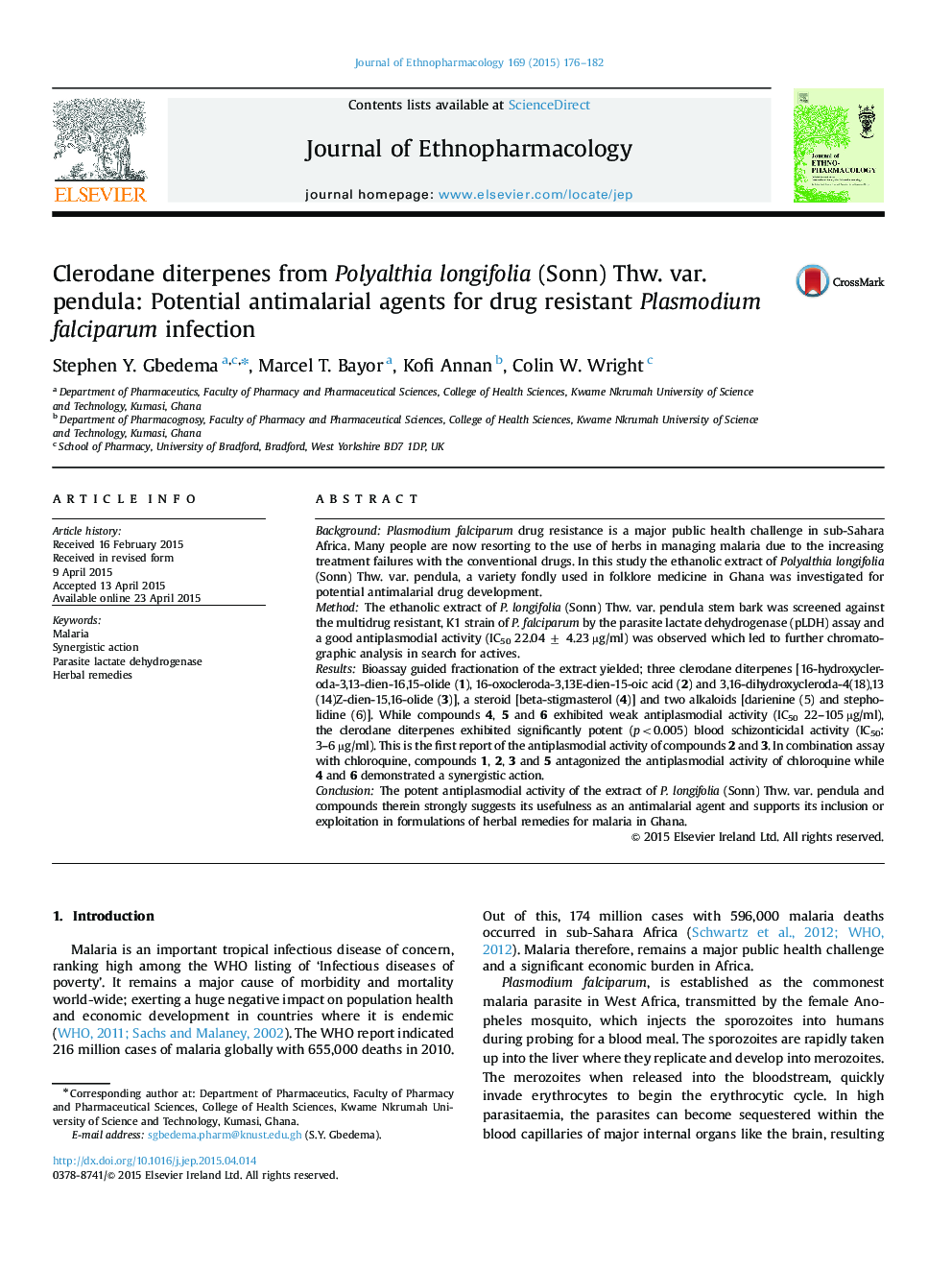| Article ID | Journal | Published Year | Pages | File Type |
|---|---|---|---|---|
| 2544980 | Journal of Ethnopharmacology | 2015 | 7 Pages |
BackgroundPlasmodium falciparum drug resistance is a major public health challenge in sub-Sahara Africa. Many people are now resorting to the use of herbs in managing malaria due to the increasing treatment failures with the conventional drugs. In this study the ethanolic extract of Polyalthia longifolia (Sonn) Thw. var. pendula, a variety fondly used in folklore medicine in Ghana was investigated for potential antimalarial drug development.MethodThe ethanolic extract of P. longifolia (Sonn) Thw. var. pendula stem bark was screened against the multidrug resistant, K1 strain of P. falciparum by the parasite lactate dehydrogenase (pLDH) assay and a good antiplasmodial activity (IC50 22.04 ± 4.23 µg/ml) was observed which led to further chromatographic analysis in search for actives.ResultsBioassay guided fractionation of the extract yielded; three clerodane diterpenes [16-hydroxycleroda-3,13-dien-16,15-olide (1), 16-oxocleroda-3,13E-dien-15-oic acid (2) and 3,16-dihydroxycleroda-4(18),13(14)Z-dien-15,16-olide (3)], a steroid [beta-stigmasterol (4)] and two alkaloids [darienine (5) and stepholidine (6)]. While compounds 4, 5 and 6 exhibited weak antiplasmodial activity (IC50 22–105 µg/ml), the clerodane diterpenes exhibited significantly potent (p<0.005) blood schizonticidal activity (IC50: 3–6 µg/ml). This is the first report of the antiplasmodial activity of compounds 2 and 3. In combination assay with chloroquine, compounds 1, 2, 3 and 5 antagonized the antiplasmodial activity of chloroquine while 4 and 6 demonstrated a synergistic action.ConclusionThe potent antiplasmodial activity of the extract of P. longifolia (Sonn) Thw. var. pendula and compounds therein strongly suggests its usefulness as an antimalarial agent and supports its inclusion or exploitation in formulations of herbal remedies for malaria in Ghana.
Graphical abstractThe potent antiplasmodial activity of the extract of P. longifolia (Sonn) Thw. var. pendula and compounds 1, 2 and 3 therein isolated strongly suggests its usefulness as an antimalarial agent and supports its exploitation in formulations of herbal remedies for malaria in Ghana.Figure optionsDownload full-size imageDownload high-quality image (181 K)Download as PowerPoint slide
